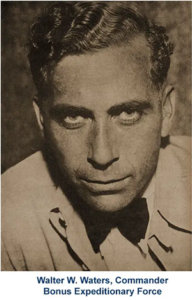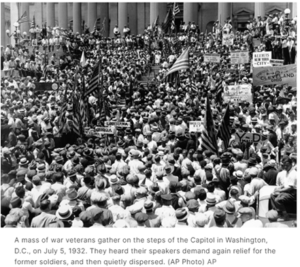 By Kelleigh Nelson
By Kelleigh Nelson
July 22, 2024
There is danger from all men. The only maxim of a free government ought to be to trust no man living with power to endanger the public liberty. —John Adams, Notes for an Oration at Braintree, Massachusetts, 1772
Nothing turns out to be so oppressive and unjust as a feeble government. —Edmund Burke
The Government of the absolute majority instead of the Government of the people is but the Government of the strongest interests; and when not efficiently checked, it is the most tyrannical and oppressive that can be devised. —John C. Calhoun
When all government …in little as in great things… shall be drawn to Washington as the center of all power; it will render powerless the checks provided of one government on another, and will become as venal and oppressive as the government from which we separated. —Thomas Jefferson
American Revolutionary, Thomas Paine, told us, “Society in every state is a blessing, but government even in its best state, is but a necessary evil; in its worst state, an intolerable one.”
Those of us who have been blessed with more than three score and ten years have seen some of the best times in America and some of the worst.
I grew up watching Saturday morning cartoons like Mighty Mouse and Tom and Jerry, half-hour shows like Hopalong Cassidy and Plunk Your Magic Twanger Froggy with Andy Devine, Sky King, Kukla Fran and Ollie, Shari Lewis and Lamb Chop and so many more. We still remember the jingles from the cartoon shows. And yes, I know my telephone number from way back then, Hollycourt 5-9189.
It’s our childhood history. Four-wheel roller skates, ice skating in winter and bicycling everywhere in the summer. Hopscotch, jump rope and ballgames in the alleys. Thank heavens we never jumped off a third-floor landing believing we could fly with an umbrella like Mary Poppins.
In those days, TV went off air at midnight and the national anthem was played before a test pattern showed on the screen.
It was post-WWII, the country was growing with new families, jobs were plentiful and people were happy. Our country had made mistakes, but we also tried to rectify and repair our missteps.
Underneath it all, a silent evil was growing and we’ve come to see our people change. Proper attire is gone, profanity has become common, respect for elders has been extinguished and revolutions in psychiatry, popular culture and jurisprudence have removed nearly all sense of immoral and illegal from the notion of perversion. Squalor, disease and filth riddle America’s largest cities with vagrants, homelessness and drugs. Phonics and cursive writing have been stricken from education along with our Constitution, American history, world history, civics, math, science, biology, English grammar and literature, foreign languages, art, geology, etc.
Worse yet, historical monuments are torn down or destroyed, southern veterans are exhumed and reinterred, and our past, both good and bad are forever erased.
That’s communism. They rewrite history, destroy cultural artifacts, suppress dissenting voices and create false narratives.
Outward appearances were beautiful but underneath wickedness was growing.
Rebellions
January 6, 2021 was not an insurrection. It was a gathering of 2000 to 2500 patriotic Americans in Washington DC to hear President Trump speak and to voice their concerns regarding the election we all knew was fraudulent. People died that day, and others who were there have since perished.
What occurred on January 6, was planned and executed by the Culmination of Marxist Infiltration within our intelligence community. It wasn’t the first time it happened.
Ninety-two years ago, the heavy boot of the federal government came down on WWI veterans.
The following seven-minute video is an overview of the WWI Bonus Marchers.
Rebellion goes back as far as the 1786-1787 Shay’s Rebellion in Western Massachusetts with the state government’s efforts to collect taxes on both individuals and their trades due to a debt crisis.
The first amendment guarantees freedom of assembly and the right to petition the Government for a redress of grievances. It doesn’t guarantee lawlessness on the side of protestors or government.
Incidents of civil unrest are littered throughout our history, and some include dastardly mistreatment of Americans.
Throughout its history, Washington, DC has been the destination of demonstrators seeking to promote a wide variety of causes. Most of the time, the gatherings have been peaceful.
In 1932, we saw the “Bonus Army” of WWI veterans gather in D.C.
American soldiers fought in World War I on the Western Front in France and Belgium as part of the American Expeditionary Forces (AEF). The AEF was established in France in July 1917 under the command of Major General John J. Pershing. My paternal grandfather had just graduated from the Presidio in California and was off to France for two years.
A bonus and other plans for the reward of millions of young men who sacrificed themselves at a critical age for the preservation of civilization was promised, most expected it to come from the federal government. Many states passed legislation promising funds and education to the men who had returned from war. Sixteen states enacted substantial legislation on the subject. A cash bonus was to go to approximately 1,148,297 ex-servicemen in eight States.
Eleven of the 16 states encouraged the men to continue their education and gave them scholarships of several hundred per year or paid veterans for education costs. Eight states, Massachusetts, Minnesota, New Hampshire, Wisconsin, Maine, New Jersey, New York, and Rhode Island gave a total cash bonus of $119,600,000. The funds were raised by bonds and taxes.
In 1924, the US government promised the servicemen they would receive a bonus for their WWI service in 1945. In 1929, the Great Depression hit with the stock market collapse. By 1932, the depression was ongoing and was taking its toll. The fence around my grandparents’ dairy farm had chalk marks on it denoting that food could be had in exchange for help on the farm.
Sheer desperation caused many of the veterans to ask for their bonuses early. If there was an official beginning of the march on DC, it started in Portland, Oregon under veteran Walter W. Waters who became the Commander of the Bonus Expeditionary Force. Waters recalled the high unemployment and low morale he witnessed on the streets of Portland, Oregon, during the first years of the Great Depression. He said that he found family after family in the same general condition or worse. “I saw men half clad, in threadbare clothing, pacing the streets in soleless shoes.” All they wanted was a chance at a few dollars through honest work.
In December of 1931, there was a small, communist-led hunger march on Washington; a few weeks later, a Pittsburgh priest led an army of 12,000 jobless men there to agitate for unemployment legislation. In March a riot at a plant in Michigan left four dead and over fifty wounded.
When a band of jobless veterans, led by the former cannery worker named Walter W. Waters, began arriving in the capital in May, tensions were high. They called themselves the “Bonus Expeditionary Forces,” and all they wanted was early payment of a bonus Congress had promised them.
 Waters led the veterans to demand the Hoover administration paid them what they were owed. The name, “Bonus,” was an oxymoron inasmuch as it was money that had been promised to those who went off to war.
Waters led the veterans to demand the Hoover administration paid them what they were owed. The name, “Bonus,” was an oxymoron inasmuch as it was money that had been promised to those who went off to war.
Jobs would have helped, but there were none. The veterans needed that lump sum from the government to pay debts, doctor bills, credit accounts and to feed their families.
Four hundred veterans had gathered in Portland and began the long trek to DC via freight train loaned to them by the rail authorities. They exited the train in Iowa and walked or hitched rides to DC. Other groups had already reached their destination and by June 1, 1932, 1500 men, many with their families, were in DC.
DC police superintendent, Brigadier General Pelham D. Glassford was more sympathetic to the men. He understood immediately the men and their families coming down the street. For weeks the newspapers had carried stories of marchers bound for the nation’s capital.
They were heading to Washington to collect payment of the “bonus” promised eight years before to soldiers who had served in the Great War. (Wrangling over the federal budget in 1924 had deferred the compensation to 1945.) By 1932, the men who called themselves the Bonus Army, were dubbing the deferred payment the “Tombstone Bonus,” because they felt that by the time they got it, most of them would be dead.
When Glassford got to his office, the newspapers were reporting the progress of veterans from all over the country, many coming on freight trains from various locals. He didn’t know where all these people would be able to stay.
He chose a tract of land known as Anacostia Flats, at the outer reaches of the District of Columbia, which could only be reached from Capitol Hill by a wooden drawbridge across the Anacostia River.
He helped with the camp as best he could, even adding $773 out of his own pocket for provisions. Piles of building materials and boxes of nails were supplied and he solicited food from local merchants.
The first contingent arrived May 23, but over the next two months, another 25,000 with wives and children arrived to stake their claim to what they felt was their due.
 They camped out in homemade shanty towns. The major sites included 12th Street and B Street, NW (the latter is now Constitution Avenue), 3rd Street and Pennsylvania Avenue, NW, and the largest, 30-acre site on the Anacostia Flats which Glassford secured for them. It was called Camp Bartlett because the former Assistant Postmaster General and former Governor of New Hampshire allowed the men to camp on his property.
They camped out in homemade shanty towns. The major sites included 12th Street and B Street, NW (the latter is now Constitution Avenue), 3rd Street and Pennsylvania Avenue, NW, and the largest, 30-acre site on the Anacostia Flats which Glassford secured for them. It was called Camp Bartlett because the former Assistant Postmaster General and former Governor of New Hampshire allowed the men to camp on his property.
Glassford asked congress for $75,000 to feed all of them and was turned down. In middle to late June the US House of Representatives did in fact vote to provide the bonus, but the US Senate rejected it and President Herbert Hoover had promised to veto the bill.
Over the next few unsettled weeks, some of the veterans left, but many more showed up. By July, more than 20,000 veterans and their families had arrived in the nation’s capital. They established a tent city and vowed to stay until their demands were met.
Against Their Own
On July 28th, the Hoover administration sent in the army and police to expel the marchers. Army Chief of Staff Douglas MacArthur was convinced that the march was a communist conspiracy to undermine the government of the United States, and that “the movement was actually far deeper and more dangerous than an effort to secure funds from a nearly depleted federal treasury.” But that was simply not the case.
According to journalist and eyewitness Joseph C. Harsch, “This was not a revolutionary situation. This was a bunch of people in great distress wanting help…. These were simply veterans from World War I who were out of luck, out of money, and wanted to get their bonus, and they needed the money at that moment.”
Conspicuously led by MacArthur, who would later serve in WWII and the Korean War, Army troops (including Major George S. Patton, Jr.) formed infantry cordons and began pushing the veterans out, destroying their makeshift camps as they went. His troops included infantry and cavalry and numbered 800, though an additional 2,700 were kept in reserve nearby, in case they were needed.
One of the veterans Patton rousted was Joe Angelo, who had saved Patton’s life in WWI. He had dragged Patton into a shell hole and stayed with him through the night.
None of the veterans wanted to leave; they needed the funds the government had promised. So, what did the army do? They used tear gas and bayonets on them to roust them and torches to set fire to their tents and what few belongings they had. The camp saw something new … five tanks, armed with machine guns, rumbling about the streets of Washington. Although no weapons were fired, cavalry advanced with swords drawn, and some blood was shed. By nightfall, hundreds had been injured by tear gas (including a baby who died), bricks, clubs, bayonets, and sabers.
The veterans ran to Camp Bartlett because it was privately owned land and the army had orders to clear federal land. But it didn’t help, they had orders to clear Bartlett’s land as well.
One fatality was recorded, although I have my doubts about only one. A veteran named William Hashka, from Chicago, was caught in police fire near the US Capitol.
The most controversial moment in the entire affair directly involved General MacArthur. Secretary of War Hurley twice sent orders to MacArthur indicating that the President worried that the government overreach might look too harsh. He did not want the Army to pursue the veterans across the bridge into their main encampment on the other side of the Anacostia River.
MacArthur, according to his aid, Dwight Eisenhower, “said he was too busy,” and did not want to be “bothered by people coming down and pretending to bring orders.” He sent his men across the bridge anyway but paused several hours to allow many to evacuate. A fire erupted in the camp although it’s not clear who started the blaze. The sight of the great fire became the signature image of the greatest unrest our nation’s capital has ever known.
Although many Americans applauded the government’s action as an unfortunate but necessary move to maintain law and order, most of the press was less sympathetic. “Flames rose high over the desolate Anacostia flats at midnight tonight,” read the first sentence of the “New York Times” account, “and a pitiful stream of refugee veterans of the World War walked out of their home of the past two months, going they knew not where.”
Media Lies
After it was over, Hoover released a statement on July 28th. He twice referred to the veterans as “the so-called Bonus marchers.” He also claimed, “An examination of a large number of names discloses the fact that a considerable part of those remaining are not veterans; many are Communists and persons with criminal records.”
By 1932, there were plenty of active communists in America, but many of the men had brought their families, and had little with them to survive. They just wanted what was owed them and the only way to get it was to camp on the doorstep of the people who promised them the money. The veterans were virulently anti-communist.
MacArthur backed the government by making the statement, “it was animated by the essence of revolution.” He then said that only about 10% of the men there were veterans. Sound familiar? The J6ers were called “domestic terrorists.”
Pelham Davis Glassford was a United States Army officer who attained the rank of brigadier general during World War I. He later served as Superintendent of the District of Columbia Police Department, and was in large measure held responsible for the violence that ended the 1932 Bonus Army protests. He claimed that he had not wanted the army involved, and that there were peaceful ways to have coerced the men into leaving. He blamed the “removal order” for causing all the trouble.
Out of 30 newspapers, 21 of them supported the administration’s orders. The Ohio State Journal, of Columbus, Ohio wrote: “President Hoover chose the course that Lincoln chose, that presidents have always chosen.”
My how I disagree with that statement.
The Chicago Herald and Examiner, referring to President Hoover by name, called his actions “sheer stupidity” that were “without parallel in American annals.”
In 1936, Congress had to override President Roosevelt’s veto of the bonus funds to WWI vets. They finally received the funds, 17 years after WWI.
In 1944, while World War II was still raging, Congress passed the G.I. Bill of Rights, to assist veterans in receiving a higher education.
Finally, the government promise was kept.
Conclusion
On October 30, 2008, Barack Hussein Obama stated, “We are five days away from fundamentally transforming the United States of America.” He completed his mission with the Culmination of Marxist Infiltration.
May the patriots of January 6th finally see true justice and freedom.
© 2024 Kelleigh Nelson – All Rights Reserved
E-Mail Kelleigh Nelson: proverbs133@bellsouth.net





